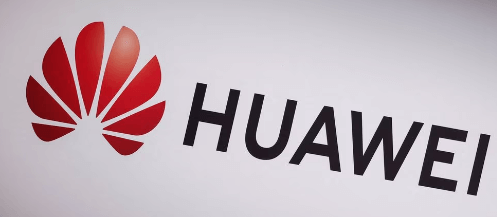Many SEO experts emphasize the significance of word count for search rankings, but does SEO success really depend on word count? Let’s examine this theory and determine whether longer content truly impacts SEO.
Each year, SEO experts advise creating longer pieces of content to rank on page one of Google. With regular algorithm updates from Google—such as their May 2022 core update—marketers are continuously seeking strategies to push content higher in search results. In this environment, many SEO professionals suggest producing longer articles to be found by searchers. But does word count actually matter for SEO?
To shed light on this ongoing debate, we consulted Google experts and other specialists.
Experts Have Revealed an Ideal Content Length for SEO
SEO professionals often recommend different word counts for various types of content. For example, analytics software provider Databox conducted interviews with SEO and content marketing experts to identify optimal word counts for specific content types. In 2021, they interviewed experts about baseline and maximum word lengths for the following:
- Landing pages: 300 to 600 words
- Evergreen content (e.g., service pages): 500 to 800 words
- Blog posts / Shareable articles for social media: 300 to 600 words
- Standard blog posts or web pages: 1,000 to 2,000 words
- In-depth articles: 2,000 words
- Comprehensive guides: 4,000 words
HubSpot, a leading CRM software provider, holds the view that longer content is always better. HubSpot’s research into optimal blog post lengths for SEO suggests writing 2,100 to 2,400-word posts for the best SEO results. They also recommend longer word counts for specific types of blog posts: pillar pages (webpages offering in-depth examinations of broad topics) should be about 4,000 words, while “how-to” posts could range between 1,700 and 2,100 words.
Yoast, the popular WordPress SEO plugin, also advocates for longer content. Their research shows that quality blog posts with greater word counts tend to rank higher on Google. In fact, the average length of blog posts that rank on the first page of Google is about 1,447 words.
See also: Series Kleiner Perkinsann Azevedotechcrunch
Why Does Longer Form Content Perform Better in Search Results?
But why do longer pieces tend to perform better on Google? Let’s dive deeper into why lengthy content may help improve search rankings.
Lengthy Content Provides Access to More Accurate Information
Longer content gives Google more indicators to understand the context of a page. With more words, your main keyword can appear more often, which helps optimize the content. This works best when the text is naturally optimized. Additionally, longer content allows for the inclusion of more synonyms and related terms that Google can recognize as relevant to the topic.
Longer texts often require more headings, links, and images than shorter texts. Optimizing these elements with specific keywords is crucial for creating high-quality, relevant information. The more content you have, the more opportunities you have to enhance the content’s relevancy.
Long-Tail Keywords
Longer content allows your website to rank for more long-tail keywords related to your main keyword. By covering multiple topics within a longer piece, you increase the likelihood that related long-tail keywords will appear in search results, broadening your SEO reach.
Long-Form Content Isn’t Thin Content
Google considers pages with minimal word counts as “thin content.” Thin content often fails to answer user queries fully, which results in low rankings. Longer content is generally seen as more comprehensive, allowing it to address a wider range of user needs and reducing the likelihood of being categorized as thin content.
Google on Whether Word Count Affects Search Rankings
Some SEO experts argue that word count can improve rankings, but Google takes a different stance. John Mueller, Google’s Senior Webmaster Trends Analyst, has stated that word count does not directly impact search rankings. In his words, “Just adding text doesn’t improve it!” Google does not associate more words on a page with higher rankings. Instead, Google’s algorithms prioritize the relevance, originality, and quality of the content.
What the Pros Have Said
SEO and content marketing experts have provided numerous insights that support Google’s position on the matter.
SEO expert Janis Thies, writing for Databox, asserts that there is no fixed “optimal” article length for SEO. She emphasizes that content length should be tailored to the topic and search intent. For certain queries, short, concise posts work best, while other queries require more in-depth, long-form content.
Neil Patel, a prominent online marketing expert, also stresses the importance of writing high-quality, keyword-focused content. While Patel agrees that longer articles tend to perform better, he emphasizes that the focus should be on creating comprehensive, keyword-optimized content rather than just increasing word count for the sake of it.
Focus on These Factors for Better Rankings
Now that the debate over word count’s impact on SEO has been addressed, you may be wondering: What factors should you focus on for better search rankings?
Here are some key factors that directly influence SEO success:
Content Structure
How you structure your content plays a significant role in both user experience and SEO. Google favors content that is well-organized and easy to navigate. Using heading tags (H1, H2, H3, etc.) to break up large blocks of text improves readability and helps both users and search engines better understand your content. A logical, user-friendly structure is key to attracting visitors and keeping them engaged.
Quality of Your Information
Google prioritizes high-quality content that provides valuable, well-researched information. Articles that are filled with fluff or irrelevant details will not perform well in search rankings. Instead, aim to produce content that is helpful, accurate, and authoritative on the subject matter.
One of the most important factors in SEO is E-A-T (Expertise, Authoritativeness, and Trustworthiness). Google rewards content from sites that are recognized as experts in their field, so it’s crucial to focus on producing authoritative, credible material.
Visual Elements
Google’s algorithm also takes visual elements—such as images, videos, and infographics—into account when ranking content. Visuals not only break up large chunks of text, but they also enhance the user experience. Including relevant images, charts, or videos can improve engagement and keep readers on your page longer, which may contribute to better rankings.
Optimizing for Special Content Blocks
Special content blocks like featured snippets and “People Also Ask” boxes can position your content at the top of the search results, sometimes even before the first organic result (known as “position zero”). To optimize for these blocks, try to answer queries in a concise, informative manner, with answers typically between 40-50 words or 250-300 characters.
Conclusion: Climb the Search Ladder with High-Quality and Useful Content
While word count can influence SEO performance to a certain extent, Google’s primary focus is on content quality and relevance. Longer content may provide more opportunities to cover a topic in-depth, but simply increasing word count without improving content quality will not boost your rankings. To succeed in SEO, focus on producing high-quality, relevant, and authoritative content that answers users’ questions, solves problems, and provides value. By doing so, you’ll increase your chances of climbing the search rankings and achieving SEO success.







